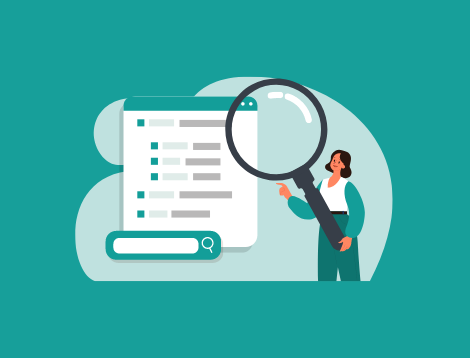You’ve done it! You’ve got your website up and running and it’s looking good. It’s a huge milestone. Of course, owning a website is just the beginning. Now to make it work for your business. To get it in front of prospective clients – those who want or need the very products or services you offer. If you’ve been asking yourself ‘How to market my website?’ this blog is for you. It will not only give you tips on how to market your website, it will also talk you through the steps you’ll need to take to transform it into a high performing digital asset. With the right strategies, a website can deliver high ROI for years to come.
Key questions to define your website's purpose
To establish the purpose of your website, ask yourself some key questions. For example, why did you need a new website? Were your primary goals brand awareness, lead generation, eCommerce, and so on? Who is your target audience? What actions do you want visitors to take? The answers to these questions will help you shape your website marketing strategy.
Strategies to attract your target audience
Digital marketing for website success doesn’t need to be complicated, as the following strategies show.
Search engine optimisation (SEO)
SEO centres on bettering the quality and quantity of traffic to your website through organic search engine results pages (SERPs), i.e. the unpaid organic listings that show. It involves choosing the right keyphrases – from your content – to optimise which makes it easier for the right people to find your business via search engines.
Content marketing
Using quality content for your new website promotion, to boost your visibility, is crucial for success and a huge part of SEO. Content for the sake of content can be detrimental to a website’s performance; however, well-crafted relevant content that is optimised is key for getting (targeted) visitors to your website. Blogs can be game-changers. Publish them frequently, using long-form content.
Paid ads
While these ads aren’t free, done well, they can pay for themselves over and again. As you wait for your SEO efforts to pay off (it can take a few months for this to happen), it could be worth leveraging a paid advertising campaign. Whether you use search, social or display ads, they can be very effective at getting targeted audiences to your site. Google Ads is a great place to start.
Social media
If you want to find potential clients who are interested in your offerings, turn to social media and online communities. The chances are, you’ll find them there. It’s just a matter of working out which platforms they use. Then you can consider what messages to present to them. Anything that’s helpful or particularly engaging should compel them to read on. And if you link to your website, your social media efforts will have done their job. Directed to the relevant web page, your well-designed website can give them the information they need to inspire them to buy. You can find places that reference subjects related to your website by using a web analysis tool, such as Ahrefs Alerts or Google Alerts.
Monitor what works best by audience type. Research groups and keep an eye on how members interact with one another. Comment on posts if you feel you can be helpful or add value to a topic. Others will start to reciprocate when you post.
Email
Email marketing can be very effective as often prospects need to be engaged a few times before being inclined to make a purchase. To make it work for you, give people reasons to subscribe. Think relevant and interesting content, competitions – anything that is going to speak to your potential client and inspire them to interact. Once you have subscribers, be sure to continue to send targeted emails worthy of their attention. The key is to keep them interested so they don’t want to unsubscribe. Use newsletters, blogs, videos, introduce new products and services, any content that’s going to make them want to revisit your website.
Multi-channel marketing
Multi-channel marketing is unquestionably a great strategy to leverage. It’s about using a blend of different platforms to market, providing an ‘all-bases-covered’ system to reach broader audiences. It can involve print, retail premises, your website (including the marketing of it), mobile app, social media posts and emails. If someone misses your social media post, they are likely to catch your email, for example. If they catch both, they are likely to recognise your message and your brand.
If you find yourself asking 'What now?', it's time to get in touch to see how we can help!
Tracking performance
It is absolutely critical that you measure the success of your marketing efforts. Once you know where you’re getting most of your website traffic from, and what kind of content is working best for you, you’ll be able to refine your marketing strategy accordingly. Google Analytics can be your best friend here. In addition to traffic, you can monitor other key metrics, such as conversion rates, cost per lead, client acquisition cost, social media engagement, ROI, SEO and more. Ongoing analysis and optimisation are just as critical to stay competitive.
Don't let competitors leave you behind
Looking at your own key metrics will give you some idea of the type of results your competitors are seeing from their marketing campaigns. Naturally, you won’t want to fall behind, losing audience engagement and market share. Use their promotional efforts to inspire your own so you can keep the competitive edge.
Turning your website into a high performing asset
The value of a well-maintained and marketed website can be phenomenal. With the right strategies in place, like SEO, content marketing and lead generation, you could well find your long-term ROI particularly favourable. Using experienced digital marketing specialists will give you a holistic approach, so nothing is missed, for maximum results.
Recap: For anyone who has been pondering ‘What is the best way to promote my website?’ our website marketing tips should help – SEO, content marketing, paid ads, social media, and email all have their place but multi-channel marketing will have you covered. It’s important to analyse which platforms and methods your best results are coming from. A digital marketing agency can take care of everything for you if you don’t have the time or resources to dedicate to your online presence. An experienced agency will know how to promote your website, they will be practised in all forms of website performance optimisation.
WEBPRO knows
92% of marketers said content is a valuable business asset for driving long-term ROI.







